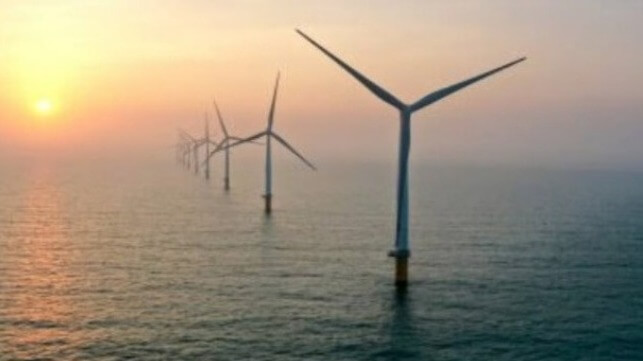Massachusetts Looks to Push Ahead with Offshore Wind as Developers Back Out

Massachusetts once again is finding itself at the forefront of the emerging challenges for the offshore wind energy sector. One of the first states to move forward with projects, Governor Maura Healey is releasing the state’s fourth RFP for wind projects while regulators are confronted by another major project that is seeking to rip up its agreements.
The changing economics and the realities of developing wind farm projects came to the forefront late last year in Massachusetts when the first of the projects said the economics of their deals no longer worked. Avangrid Renewables, part of Spain’s IBERDROLA Group, started the issue last year by petitioning the DPU (Department of Public Utilities) to dismiss its review of the Commonwealth Wind contracts with the power companies. They cited the changing economics saying that the project needed to be rebid in the 2023 solicitation for offshore wind. The Mayflower Wind project, which is a partnership between Shell New Energies and Ocean Winds North America (a joint venture between EDP Renewables and ENGIE), also began advocating for changes to its power agreements.
The developers of Mayflower Wind, renamed SouthCoast Wind, have now confirmed they are going to walk away from their agreements despite the efforts by the DPU to force the developers to move forward under the contracts that were negotiated in June 2022. The lease for the project was originally awarded in December 2018 and went into effect in 2019 calling for a proposed offshore wind farm in U.S. federal waters about 30 miles south of Martha’s Vineyard and 23 miles south of Nantucket, with an initial capacity of 804 MW and a longer-term potential for up to 2.4 GW.
They had moved forward with the project and early preparations, but in June reported they had recently initiated discussions with representatives of the Commonwealth of Massachusetts and the Massachusetts electric distribution companies to terminate the existing Power Purchase Agreements. In a filing last week, they confirmed they will pay $60 million to walk away from the agreements while calling for them to be rebid in the next round to reflect the changed economics of offshore wind development. They need approval from the regulators.
This follows a filing by Avangrid in July that proposed a similar walkaway from its power agreements. The company said it would pay a total of $48 million to three power companies to terminate the agreements. The company says it must have more favorable financial terms to make the project viable.
Of Massachusetts' first three big offshore wind projects, only the Vineyard Wind 1 farm has moved forward. It calls for an 800-megawatt project located 15 miles off the coast of Martha’s Vineyard. In August, turbine installation began with the goal of completing the project which is being developed in a partnership between funds of Copenhagen Infrastructure Partners (CIP) and Avangrid Renewables by the end of 2023.
Despite the troubles in the industry, Massachusetts looks to push forward becoming what the governor is calling an offshore wind industry hub. They released the state’s fourth RFP, its largest offshore wind solicitation to date. It would more than double the state’s current wind power solicited compared to previous procurements.
Bids are due by January 31, 2024, and they plan to execute contracts by August 14, 2024. The RFP envisions selecting offshore wind generation of up to 3.6 GW. The governor highlights that it would be equal to a quarter of the state’s annual electricity demand.

that matters most
Get the latest maritime news delivered to your inbox daily.
In announcing the new effort, the governor highlighted that the state is not insensitive to the challenges driven by inflation and other macroeconomic trends. The next round under the RFP allows for additional flexibility including bidders can submit an alternative indexed pricing proposal. They are also highlighting the availability of federal tax credits and incentives.
Those tax programs however have become one of the flash points in the emerging rift over development. Ørsted expressed the problems it was experiencing saying the credits are falling short of projections and the hurdles are too steep because of the lack of a developed domestic U.S. supply chain. Executives from Ørsted, Equinor, and ENGIE all told Reuters this week that the credits under the Inflation Reduction Act are not working as planned and need to be revised.
